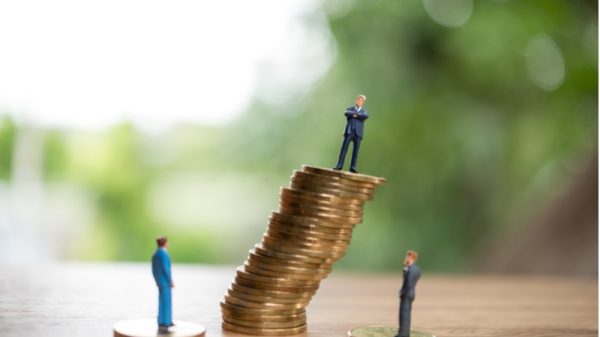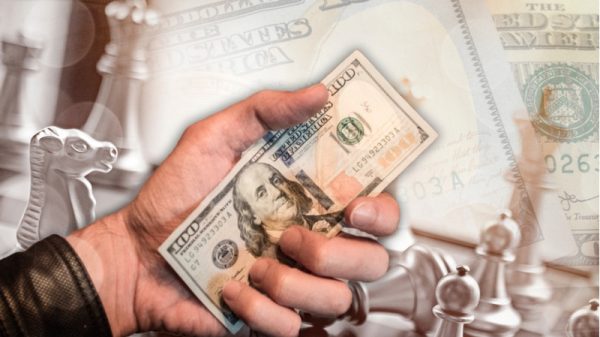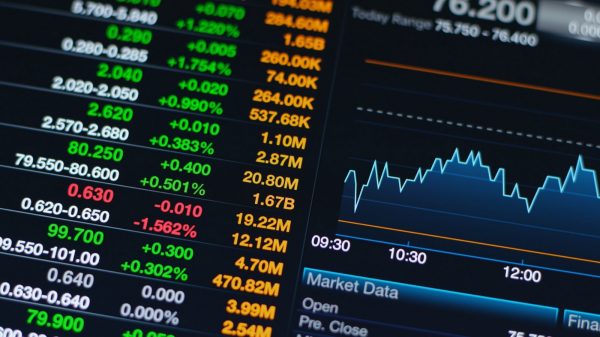Almost immediately after the presidential debate ended Tuesday, former president Donald Trump proclaimed victory.
This was inevitable, certainly. He did the same thing after debating President Joe Biden in June, but that was at least a contest in which he was obviously the more successful participant. On Tuesday, he was not — but then, he hadn’t been in any of his presidential debates in 2016 or 2020 either. And after those ones he generally did what he did Tuesday, lifting up garbage online “polls” in which his supporters were able to overwhelmingly declare him victorious. Actual polls, reliable ones, offer a different assessment.
Late Wednesday night, Trump moved on to broadly declaring himself successful.
“People are just starting to give me credit for having a GREAT DEBATE. The Voters and Voter Polls showed it, but the Fake News Media wasn’t giving the credit that was due,” his social media post read. “Now they are seeing the results with independent Voters, Evangelicals, and more — and saying, WOW!”
This has not been my impression. I was curious, though, where the claim about evangelicals came from. The answer, happily, came from scrolling down a bit in Trump’s feed.
Shortly before that post, he had reposted something from journalist David Brody. Brody pointed to data from Pew Research Center showing that, as he put it, Trump was “up 82%_16%.”
“That’s a PHENOMENAL number,” Brody added, “and it should go higher from there because voter education & GOTV programs haven’t even hit their full effect yet. Some of the growth doesn’t show up until Election Day.”
This is not the assumption I would make. Trump is a well-known entity in general but particularly among White evangelical Protestants. It’s unlikely that many of them are going to start shifting toward him or away from Vice President Kamala Harris over the next few weeks.
Nor is the Pew number particularly “phenomenal.” Pew has also developed estimates of support by religion over the past two presidential elections. In 2016, Trump won White evangelical Protestants by 77 percent to 16 percent. In 2020, it was 84 percent to 15 percent. The poll’s 82 percent to 16 percent is squarely in line with 2020 (if slightly worse to a non-statistically significant degree).
That level of support, though, reflects how important the evangelical vote was to Trump’s success. In 2016, evangelical voters made up about a third of Trump’s total support. Four years later, they made up a bit more. In neither election was that support enough to give Trump a popular-vote victory.
Trump’s Democratic opponents, meanwhile, have fared better among those who aren’t religious — either unaffiliated with a religion or explicitly nonreligious. In 2020, those voters made up about as much of Biden’s support as evangelicals made up Trump’s.
Research from PRRI has identified how central the support of White Christians is to Trump’s political base. The organization’s recently published census of religious identity shows the long-term problem for Trump and Republicans more broadly: The percentage of White Christians (including evangelicals) is sliding, while the percentage of religiously unaffiliated Americans is rising. This slide is tightly integrated into Trump’s political rhetoric.
In 2016 and 2020, about a fifth of the presidential electorate identified as White evangelical Protestants — overperforming their presence in the population. In those same elections, about a quarter of voters were unaffiliated, agnostic or atheist.
One takeaway here is that Trump is, once again, misreading polls. The Pew poll that Brody highlighted was completed Sept. 2, more than a week before the debate. It does not in any way have people saying “WOW” about how impressed evangelicals were with that encounter.
Another takeaway is that Trump continues to understand that his political future depends on those religious voters.
Speaking to television host Phil McGraw this month, Trump suggested that his survival after coming under fire during a rally in Pennsylvania two months ago was a sign of divine intervention. Asked by McGraw if he thought there was a reason he lived, Trump said that “the only thing I can think is that God loves our country. And he thinks we’re going to bring our country back. He wants to bring it back.”
The attack has frequently been presented in religious terms by his supporters, from almost the moment that it occurred. A giant flag draped behind the stage where he spoke was briefly tangled before the attack unfolded, for example; his supporters now suggest that its appearance, vaguely resembling an angel, was a sign of providence. Even when he was president, most evangelicals said they thought Trump was selected by God to serve. To many of them, the assassination attempt merely demonstrates it.
The religious aspect is unquestionably one reason that Trump and his allies seek to keep the assassination attempt at the forefront of the public’s attention. During the debate, Trump used the shooting to imply that Harris and President Joe Biden were somehow responsible (a claim for which there’s no evidence). But more broadly, his supporters insist that the incident has been under-discussed in part because they see it as essential to the election, which in turn is in part because they think that Trump’s survival is a sign that God intended to preserve him. (What this says about God’s view of the man who was killed is left unexplored.)
Trump is not particularly religious himself (to force the word “particularly” to play a role of significant understatement). But he knows both that his base is strongly religious and that they are concerned about the status of religion in American society. He’s drawn strength from this symbiotic relationship since 2015. And now, in his time of emotional need — convincing himself that the debate went well — he again enlists his religious supporters in his defense.



























